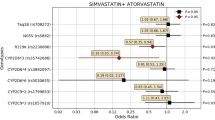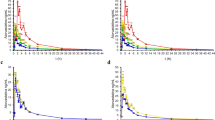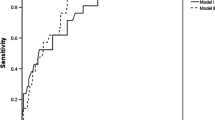Abstract
Warfarin sodium is a vitamin K antagonist that is plagued by large variability in patient response, including higher dose requirements among African Americans. Polymorphisms in the gene encoding apolipoprotein E (APOE) may partly explain this variability by altering transport of vitamin K to the liver. In a prospective cohort study of 232 individuals (52.2% Caucasian and 47.8% African American) initiating warfarin therapy, the weekly maintenance dose was significantly higher for African Americans than for Caucasians (mean 42.9 versus mean 36.9 mg, P=0.018), and the ɛ4 allele was more common among African Americans (37.8 versus 26.4% for Caucasians). In multivariable analyses, the presence of the ɛ4 allele was associated with a statistically significantly higher warfarin dose among African Americans (median 45.0 mg in ɛ4 carriers versus 35.0 mg in non-ɛ4 carriers, P=0.014) but not Caucasians (38.1 versus 35.0 mg, P=0.60). In addition, warfarin maintenance dose increased among African Americans according to genotype previously associated with differential hepatic chylomicron clearance (ɛ2/ɛ2 or ɛ2/ɛ3: 30.0 mg; ɛ3/ɛ3: 35.0 mg; ɛ3/ɛ4 or ɛ4/ɛ4: 45.0 mg; P=0.012), although the ɛ4/ɛ4 genotype was rare and not clearly associated with higher doses. The association of APOE with warfarin dosing was independent of CYP2C9 and VKORC1 polymorphisms. APOE polymorphisms thus may be important determinants of warfarin maintenance dose and could explain at least some of the observed racial differences in dose requirements.
This is a preview of subscription content, access via your institution
Access options
Subscribe to this journal
Receive 6 print issues and online access
$259.00 per year
only $43.17 per issue
Buy this article
- Purchase on Springer Link
- Instant access to full article PDF
Prices may be subject to local taxes which are calculated during checkout

Similar content being viewed by others
References
Breckenridge AM . Interindividual differences in the response to oral anticoagulants. Drugs 1977; 14: 367–375.
Gage BF, Eby C, Milligan PE, Banet GA, Duncan JR, McLeod HL . Use of pharmacogenetics and clinical factors to predict the maintenance dose of warfarin. Thromb Haemost 2004; 91: 87–94.
Takahashi H, Wilkinson GR, Nutescu EA, Morita T, Ritchie MD, Scordo MG et al. Different contributions of polymorphisms in VKORC1 and CYP2C9 to intra- and inter-population differences in maintenance dose of warfarin in Japanese, Caucasians and African-Americans. Pharmacogenet Genomics 2006; 16: 101–110.
Sanderson S, Emery J, Higgins J . CYP2C9 gene variants, drug dose, and bleeding risk in warfarin-treated patients: a HuGEnet systematic review and meta-analysis. Genet Med 2005; 7: 97–104.
Rieder MJ, Reiner AP, Gage BF, Nickerson DA, Eby CS, McLeod HL et al. Effect of VKORC1 haplotypes on transcriptional regulation and warfarin dose. N Engl J Med 2005; 352: 2285–2293.
Majerus PW, Broze Jr GJ, Miletich JP, Tollefsen DM . Anticoagulant, thrombolytic, and antiplatelet drugs. In: Hardman JG, Limbird LE, Molinoff PB, Ruddon RW, Goodman Gilman A (eds). Goodman & Gilman's The Pharmacological Basis of Therapeutics. McGraw-Hill: New York, 1996, pp. 1341–1359.
Lamon-Fava S, Sadowski JA, Davidson KW, O'Brien ME, McNamara JR, Schaefer EJ . Plasma lipoproteins as carriers of phylloquinone (vitamin K1) in humans. Am J Clin Nutr 1998; 67: 1226–1231.
Corbo RM, Scacchi R . Apolipoprotein E (APOE) allele distribution in the world. Is APOE*4 a ‘thrifty’ allele? Ann Hum Genet 1999; 63: 301–310.
Weintraub MS, Eisenberg S, Breslow JL . Dietary fat clearance in normal subjects is regulated by genetic variation in apolipoprotein E. J Clin Invest 1987; 80: 1571–1577.
Kohlmeier M, Salomon A, Saupe J, Shearer MJ . Transport of vitamin K to bone in humans. J Nutr 1996; 126: 1192S–1196S.
Saupe J, Shearer MJ, Kohlmeier M . Phylloquinone transport and its influence on gamma-carboxyglutamate residues of osteocalcin in patients on maintenance hemodialysis. Am J Clin Nutr 1993; 58: 204–208.
Kohlmeier M, Saupe J, Drossel HJ, Shearer MJ . Variation of phylloquinone (vitamin K1) concentrations in hemodialysis patients. Thromb Haemost 1995; 74: 1252–1254.
Visser LE, Trienekens PH, De Smet PA, Vulto AG, Hofman A, van Duijn CM et al. Patients with an ApoE epsilon4 allele require lower doses of coumarin anticoagulants. Pharmacogenet Genom 2005; 15: 69–74.
Kohnke H, Sorlin K, Granath G . Warfarin dose related to apolipoprotein E (APOE) genotype. Eur J Clin Pharmacol 2005; 61: 381–388.
Kohnke H, Scordo MG, Pengo V, Padrini R, Wadelius M . Apolipoprotein E (APOE) and warfarin dosing in an Italian population. Eur J Clin Pharmacol 2005; 61: 781–783.
Sconce EA, Daly AK, Khan TI, Wynne HA, Kamali F . APOE genotype makes a small contribution to warfarin dose requirements. Pharmacogenet Genomics 2006; 16: 609–611.
Kohlmeier M, Saupe A, Saupe J . Anticoagulant response to phenprocoumon is related to apolipoprotein E genotype. Klin Lab 1995; 41: 359–361.
D'Andrea G, D'Ambrosio RL, Di Perna P, Chetta M, Santacroce R, Brancaccio V et al. A polymorphism in the VKORC1 gene is associated with an interindividual variability in the dose-anticoagulant effect of warfarin. Blood 2005; 105: 645–649.
Bodin L, Verstuyft C, Tregouet DA, Robert A, Dubert L, Funck-Brentano C et al. Cytochrome P450 2C9 (CYP2C9) and vitamin K epoxide reductase (VKORC1) genotypes as determinants of acenocoumarol sensitivity. Blood 2005; 106: 135–140.
Moll S, Ortel TL . Monitoring warfarin therapy in patients with lupus anticoagulants. Ann Intern Med 1997; 127: 177–185.
Richards B, Skoletsky J, Shuber AP, Balfour R, Stern RC, Dorkin HL et al. Multiplex PCR amplification from the CFTR gene using DNA prepared from buccal brushes/swabs. Hum Mol Genet 1993; 2: 159–163.
Tsukamoto K, Watanabe T, Matsushima T, Kinoshita M, Kato H, Hashimoto Y et al. Determination by PCR-RFLP of apo E genotype in a Japanese population. J Lab Clin Med 1993; 121: 598–602.
Davignon J, Gregg RE, Sing CF . Apolipoprotein E polymorphism and atherosclerosis. Arteriosclerosis 1988; 8: 1–21.
Box GEP, Cox DR . An analysis of transformations. J Royal Stat Soc 1964; B-26: 211–252.
Draper NR, Smith H . Applied Regression Analysis. Second ed. John Wiley & Sons Inc.: New York, 1981.
Acknowledgements
We thank Sandy Barile for editorial assistance, Joseph A Gascho, MD, for serving as the site investigator at HMC, Frederick F Samaha, MD, for serving as the site investigator at the PVAMC, and Sarah L Booth, PhD, for her critical insights. We are also indebted to Mitchell Laskin, RPh; Mabel Chin, PharmD; and Francis Herrmann, BS, RPh, for their dedication to our field work. Funded by NIH Grant R01HL066176–04; Drs Kimmel and Whitehead are also funded by NIH P20-RR020741. The funders had no role in the design and conduct of the study; collection, management, analysis and interpretation of the data; or preparation, review, or approval of the manuscript. Dr Kimmel has received research funding from GlaxoSmithKline and has served as a consultant to Bayer and GlaxoSmithKline, all unrelated to warfarin. The data will be deposited in PharmGKB (www.pharmgkb.org). Funded by NIH grants R01HL066176 and P20RR020741.
Author information
Authors and Affiliations
Corresponding author
Rights and permissions
About this article
Cite this article
Kimmel, S., Christie, J., Kealey, C. et al. Apolipoprotein E genotype and warfarin dosing among Caucasians and African Americans. Pharmacogenomics J 8, 53–60 (2008). https://doi.org/10.1038/sj.tpj.6500445
Received:
Revised:
Accepted:
Published:
Issue Date:
DOI: https://doi.org/10.1038/sj.tpj.6500445
Keywords
This article is cited by
-
Effect of gene polymorphism on bleeding complications in Chinese Han patients taking warfarin
European Journal of Clinical Pharmacology (2022)
-
Association of apolipoprotein E (APOE) polymorphisms with warfarin maintenance dose in a northern Han Chinese population
Lipids in Health and Disease (2016)
-
Polymorphisms of CYP2C9, VKORC1, MDR1, APOE and UGT1A1 Genes and the Therapeutic Warfarin Dose in Brazilian Patients with Thrombosis: A Prospective Cohort Study
Molecular Diagnosis & Therapy (2014)
-
Dosage Individualization of Warfarin Using Artificial Neural Networks
Molecular Diagnosis & Therapy (2014)
-
Optimal dosing of warfarin and other coumarin anticoagulants: the role of genetic polymorphisms
Archives of Toxicology (2013)



